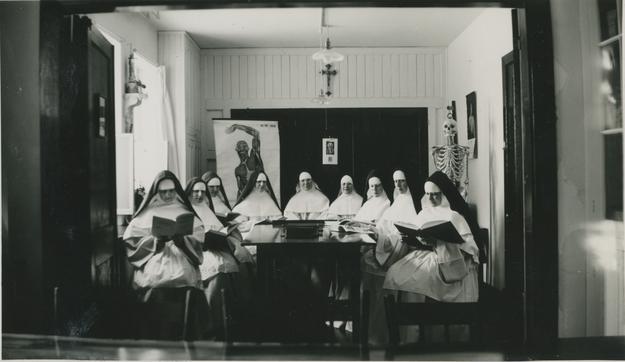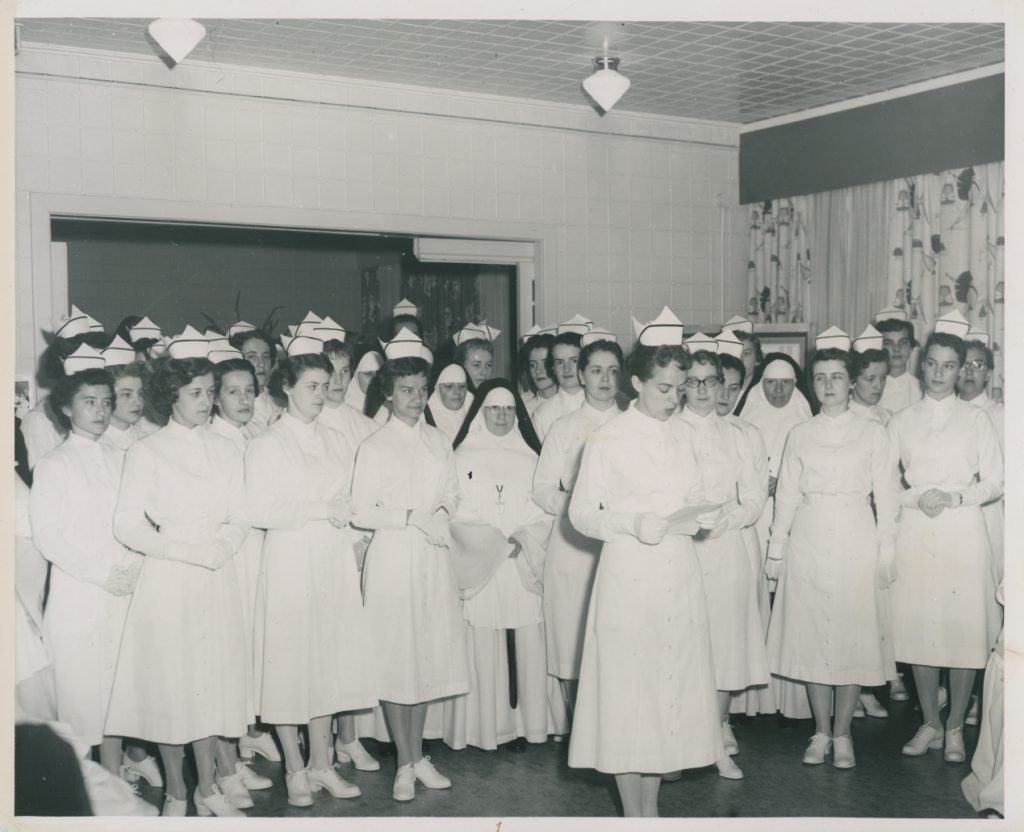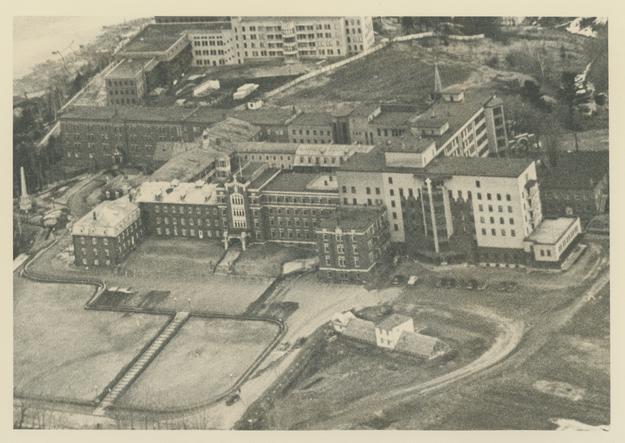Chicoutimi: A Constant Presence, But Renewed
Spring is often an opportunity for renewal, change and resolution. The Chicoutimi Augustinian Sisters were no exception to this rule. Industrial society after the 1960s brought its share of questions, challenges and transformations, particularly with regard to religious institutions and the modernization of health care. The Augustinian Sisters of Chicoutimi have been able to adapt, especially by forging ahead and continuing their work outside the community.

Fonds Monastère des Augustines de l’Hôpital Général de Québec
© Archives du Monastère des Augustines
Nursing Education
At first, they continued to share their knowledge and their teachings, particularly at the École d’infirmières de l’Hôtel-Dieu Saint-Vallier de Chicoutimi, which was opened to lay people in July 1939. It was later forced to close its doors in June 1969 due to the development of CEGEPs and various university faculties of nursing. This did not prevent most Augustinians from continuing their education in these educational institutions.

Adapting to Social Needs and Situations
In addition, in Chicoutimi itself, several commitments were set in motion to adapt to the new social reality. For example, in the fall of 1968, the Augustinian Sisters set up a welcome centre at the monastery to accommodate the visitors coming from afar to accompany the sick to the Chicoutimi hospital. They also played a role caring for two seniors’ residences in the late 1960s: Oasis de Mistassini and Foyer des Années d’or de Kénogami. The big change in these new responsibilities is that cloistered nuns were asked to do their work outside the monastery and the hospital.
Pursuing Work Outside of the Hospital
This approach was also used in the decades to follow, whether through some nuns working in a volunteer centre, an association for single-parent families or in various pastoral works such as CO-FA-VIE (Couple, Family, LIFE). The Augustinian Sisters also committed their time to Maison de l’hospitalité de Chicoutimi, which opened in January 1982 and welcomed people experiencing difficulty, alcoholics and drug addicts.

(HG-A-26.12.4.4.24)
Fonds Monastère des Augustines de l’Hôpital Général de Québec
© Archives du Monastère des Augustines
The Augustinians of Chicoutimi managed to maintain their presence by adapting to the requirements of a hospital, while revising their work and actions outside of it. This is a significant legacy.
SOURCES
GAGNON, Luc. « De l’Hôpital de marine au Centre de santé et de services sociaux de Chicoutimi : Les Augustines de Chicoutimi et les soins de santé au Saguenay─Lac-Saint-Jean ». SaguenayensiA, Vol. 51, No. 3, July-September 2009, p.7-10
GAUDET, Daniel. « Les Augustines, piliers séculaires de l’innovation en santé dans le monde et au Saguenay-Lac-Saint-Jean ». SaguenayensiA, Vol. 51, No. 3, July-September 2009, p. 38-48 PERRON, Normand. Un siècle de vie hospitalière au Québec : les Augustines et l’Hôtel-Dieu de Chicoutimi 1884-1984, Presses de l’Université du Québec, Québec, 1984, p. 252-264.
